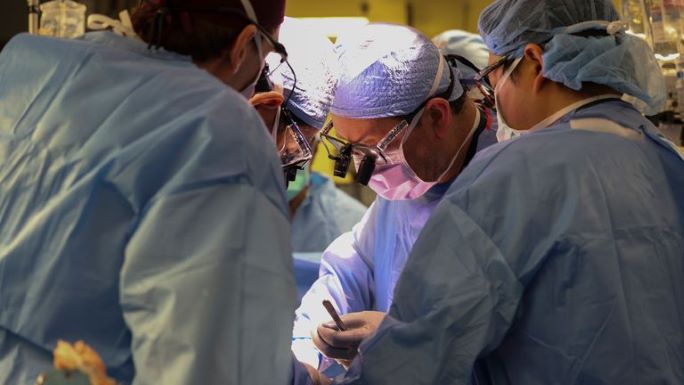Man recovering well after successful milesone Pig kidney transplant
 A pig kidney has been successfully transplanted into a living human, a U.S. hospital announced on Thursday.
A pig kidney has been successfully transplanted into a living human, a U.S. hospital announced on Thursday.
Massachusetts General Hospital said the genetically-edited pig kidney was transplanted into a 62-year-old man living with end-stage kidney disease who is also reported to be recovering well.
Surgeons from the Mass General Transplant Centre conducted the four-hour surgery on Saturday.
Radiation: From dishwasher, microwave oven to phone, mankind faces health threat
The procedure marked a major milestone in the quest to provide more readily available organs to patients, the hospital said.
Mass General Brigham Chief Executive Officer Anne Klibanski said that researchers and clinicians were pushing the boundaries of science to transform medicine.
“Nearly seven decades after the first successful kidney transplant, our clinicians have once again demonstrated our commitment to providing innovative treatments and to also help ease the burden of disease for our patients and others around the world.’’
The operation was a milestone in xenotransplantation – transplantation of organs or tissues from one species to another as a potential solution to the worldwide organ shortage – the hospital said.
The kidney came from a pig that was genetically-edited to remove harmful pig genes and add certain human genes to improve its compatibility with humans.
Scientists also inactivated porcine endogenous retroviruses in the pig donor to eliminate any risk of infection in humans.
The patient is said to be recovering well and expected to be discharged from the hospital soon.
There is a chronic shortage of human donor organs for people who need them. Animal donors might help solve that. Heart transplants from pigs to humans have been tried recently too.
The special pig kidney was provided by eGenesis of Cambridge, Massachusetts. The animal had been genetically edited to remove genes that could be harmful to a human recipient and to add certain human genes to improve compatibility.
Mr Slayman is still taking anti-rejection drugs though, and it is not clear for how long his new kidney will function. This is unchartered territory.
One of the transplant team, Dr Tatsuo Kawai, said: “Our hope is that this transplant approach will offer a lifeline to millions of patients worldwide who are suffering from kidney failure.










